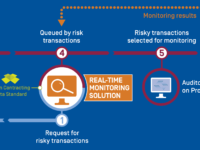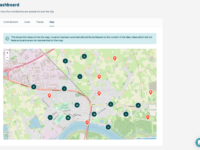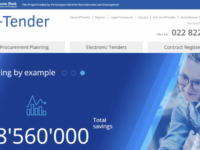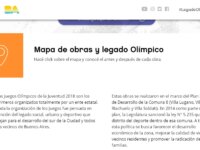MTender is a revolutionary tool which will transform the way public funds are spent in Moldova, a country with a long history of corruption.
The world’s first fully digital public procurement system, MTender uses open data to manage every element of the public contracting system. This enables officials to do their jobs better, citizens to hold the government to account, taxpayers to get a better deal, and businesses to compete on a level playing field.
Innovation Tag Opengov: accountability
Case Study
Digital tools to monitor and predict risks in auditing Ukraine’s revolutionary online public…

Ukraine is transforming its public procurement system to bring public procurement into the open, so citizens get a better deal and government runs smoothly. EBRD has supported the Ukrainian government to develop a new legal framework, and to develop cutting edge tools which can process vast amounts of procurement data in real time. State auditors can now quickly & pre-emptively spot risks or inefficiencies in the system and address them. It is the first innovation of this kind in the world.
Citizens Connect is a civic tool that provides access to information and public services, to support effective service delivery by gathering feedback and highlighting issues which are of concern to Citizens to the relevant Government agency for timely resolution. The platform also serves as a portal for civic awareness, public service information, citizen reporting, inquiries, and advice. This initiative fosters accountability and transparency in public services.
The promotion of competition has been identified as one of the major challenges of the Public Procurement System in Colombia. Despite its importance, it was only in 2019 that a tool allowing to effectively monitor the participation of the interested parties on the bidding processes was developed and implemented by the Colombian Procurement Agency. Thanks to this tool, participants are able to diagnose flaws, and make suggestions or requests for improvements.
The project of monitoring open government commitments was developed with the objective of guaranteeing the fulfillment of the Brazilian initiatives in the scope of the Open Government Partnership. It is a process carried out jointly, periodically and proactively by government and civil society, with significant results for society as a whole. This approach is materialized through specific monitoring and evaluation actions that provide transparency regarding the implementation of Brazilian OGP…
Based on the idea that cultural consumption is important both for enriching yourself as a person and strengthening the fabric of our society, in 2016 the Italian government introduced a 500€ cultural bonus for all 18-year-old people living in Italy. Young people can spend it on cultural items and activities such as going to theatres, concerts and museums, buying books, etc. They have to register online and then spend the money through the dedicated website 18app.it, accessible from any device.…
The methodology of the “Brazil Transparency Scale” Survey consists of a checklist on 17 categories that cover all relevant aspects of the access to information regulation at the local level, the existence and functionality of the electronic Citizen Information Service (passive transparency), as well as the information disclosure of public funds, revenue, expenditure, public bidding, etc. (active transparency). The final evaluation score ranged from zero to ten.
The Youth Olympic Games Buenos Aires 2018 had as an objective to be organized in an open and transparent manner. As a result, the Olympic Legacy initiative was created to ensure relevant and timely access to information to all local stakeholders in regards to the event and its organization. This platform brought open government tools at the heart of the development of a global sports event. It had a significant impact in terms of promoting open data, higher quality data standards, improved…
Case Study
Unlocking the potential of crowdsourcing for public decision-making with artificial intelligence

In citizen participation projects, analysing contributions is often a huge challenge for administrations.
CitizenLab has developed machine-learning algorithms in order to help civil servants easily process thousands of citizen contributions and efficiently use these insights in decision-making.
The dashboards on our platform classify ideas, show what topics are emerging, summarise trends and cluster similar contributions by theme, demographic trait or location.
A new waste management system, driven by information. Bogota has evolved its cleaning and recycling scheme, generating a profound transformation in the way in which citizens needs are met and garbage collection is managed. This model is based on the effective use of data and information. This initiative has allowed greater transparency in the actions of involved public and private organizations, an intense collaboration to provide the best service and enabling citizens active participation.




